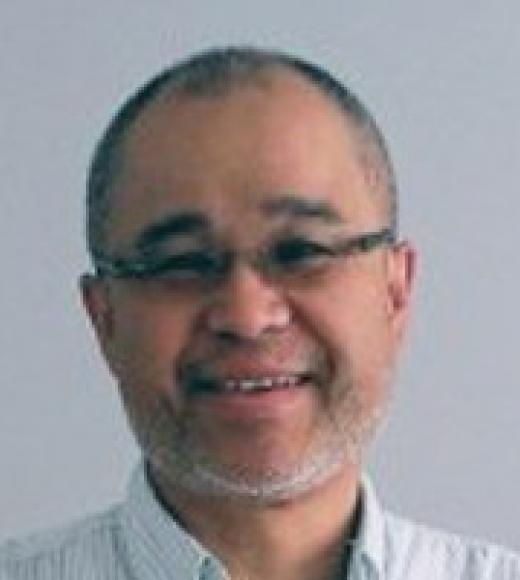
Position Title
Director of East Asian Studies
Professor of Sociology
EDUCATION
- Ph.D., Sociology, University of California, Berkeley (2001)
- M.A., Sociology, University of California, Berkeley (1994)
- B.A., Behavioral Science, Cal Poly Pomona (1991) summa cum laude
About
I came to the United States from Hong Kong as an international student in the late 1980s, not knowing what to do with my life. I stumbled on sociology, a subject that I did not know anything about. I began to discover my patience in reading, writing, and doing research. Previous academic training in a British colony, a stimulating US academic environment, family and friend support, and a series of opportunities were major reasons why I became a sociologist. These days I focus on using new theoretical approaches together with rigorous empirical analysis to examine the history of Chinese socialism, an important part of global history not taught in school when I was growing up.
My recent book (2019) is about the rise of a primary classification of people in China and how the process shaped societal structures and culture. It tells a compelling story of social change. I also have a book (2007) on bureaucratic organization in the Chinese socialist system. It reexamines how the workplace was organized between the early 1950s to the mid-1960s. My third book (2016) is a co-edited volume with two exceptional historians that deals with knowledge production in Republican China, or the emergence of new systems of knowledge amid war, revolution, and China's incorporation into the world economy.
Currently, I am looking into the dynamics of the Chinese Cultural Revolution. My hope is to write some articles about this event and, hopefully, a book on the topic.
Research Focus
Political Sociology, Social Change, Social Organization, Social Interaction, Classification and Identity, China Studies
Selected Publications
Books
- Eddy U, Creating the Intellectual: Chinese Communism and the Rise of a Classification. University of California Press, 2019. (Open access reading available through https://www.ucpress.edu/book/9780520303690/creating-the-intellectual)
- Eddy U (with Robert J. Culp and Wen-hsin Yeh), eds., Knowledge Acts in Modern China: Ideas, Institutions, and Identities. Berkeley: Institute for East Asian Studies Publications, 2016.
- Eddy U, Disorganizing China: Counter-Bureaucracy and the Decline of Socialism. Stanford University Press, 2007.
Journal articles
- “Rise of Marxist Classes: Bureaucratic Classification and Class Formation in Early Socialist China.” European Journal of Sociology 57 (1) (2016): 1–29.
- “What was the Petty bourgeoisie? Cultural Positioning and Reification of Marxist classes in Early PRC Discourse.” Modern China 41 (6) (2015): 575–602.
- “Intellectuals and Alternative Socialist Paths in Early Mao years.” China Journal 70 (2013): 1–23.
- “Reification of the Intellectual: Representations, Organization, and Agency in Revolutionary China.” British Journal of Sociology 64 (4) (2013): 617–642
- “Dangerous Privilege: The United front and the Rectification Campaign of the Early Mao Years.” China Journal 68 (2012): 32–57.
- “Third Sister Liu and the Making of the Intellectual in Socialist China.” Journal of Asian Studies 69 (1) (2010): 57–83.
- “Reification of the Chinese Intellectual” On the Origins of the CCP’s Concept of Zhishifenzi.” Modern China 35 (6) (2009): 604–631.
- “The Making of the Chinese Intellectual: Representations and Organization in the Thought Reform Campaign.” China Quarterly 192 (2007): 971–989.
- “State Management of Careers, Workplace Conflict, and Regime Legitimacy in Socialist China.” Sociology Quarterly 46 (2) (2005): 359–384.
- “Leninist Reforms, Workplace Cleavages, and Teachers in the Chinese Cultural Revolution.” Comparative Studies of Society and History 47 (1) (2005): 106–133.
- “The Hiring of Rejects: Teacher Recruitment and the Crises of Socialism in the Early PRC Years.” Modern China 30 (1) (2004): 46–80.
- “The Making of Zhishifenzi (Chinese Intellectuals): The Critical Impact of the Registration of Unemployed Intellectuals in the Early PRC.” China Quarterly 173 (2003): 100–121.
Book Chapters
- “Introduction: Knowledge Systems, Knowledge Producers, and China’s Distinctive Modernity,” (with Robert J. Culp), in Knowledge Acts in Modern China: Ideas, Institutions, and Identities, eds. Robert J. Culp, Eddy U, and Wen-hsin Yeh. Berkeley: Institute for East Asian Studies Publications, 2016.
- “The Formation of the Intellectual in Yan’an,” in Knowledge Acts in Modern China: Ideas, Institutions, and Identities, eds. Robert J. Culp, Eddy U, and Wen-hsin Yeh. Berkeley: Institute for East Asian Studies Publications, 2016, pp. 328–354.
Teaching
Undergraduate Lectures
- SOC 5 Global Social Change
- SOC 145A Third-World Development
- SOC 188 Markets, Culture and Inequality in Contemporary China
Graduate Seminars:
- SOC 265B Contemporary Social Theory
- SOC 288 Professional Writing Practicum